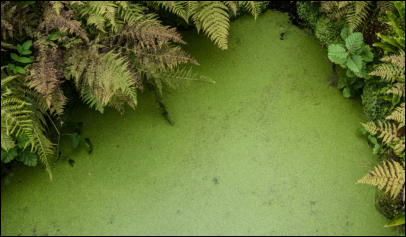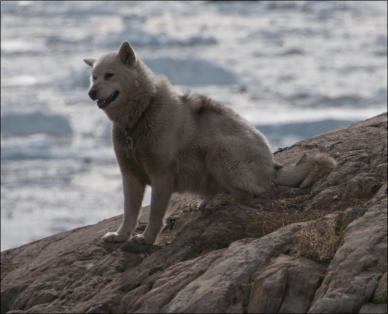
© University of Liverpool 2019
FIELDWORKSAFETY


Health matters
Medicines
If you have a medical condition you should ensure that you always carry the appropriate
medication and that the party leader is not only aware of your condition but also knows
what to do in an emergency. Risks of forgetting your medication are recurrence of the
condition and impaired ability in the field.
Disabilities
Students with disabilities are encouraged to participate as fully as possible in fieldwork and should consult their
institution's Disabled Student Advisor and/or the field leader regarding the physical demands of specific fieldwork.
Disabilities may require adjustments or support whilst fieldwork is being undertaken.
Considerable risks to yourself and others may result from failure to inform the field leader of any illness, allergy or
disability, which although manageable in normal, everyday environments may be extremely serious in an isolated
or unfamiliar environment.
Insects/ticks
Biting insects can be a problem when working in the field, especially in northern latitudes and
upland boggy areas. Most insect bites result in irritation, but some become severely swollen or
infected and need medical attention. Ticks are common where sheep or deer numbers are high and
there is risk of Lyme disease contracted from tick bites. These bites may initially cause an itch and
then a rash. You may develop flu-like symptoms, loss of appetite and insomnia. If symptoms persist
you must seek medical attention.
Precautions to take are:
•
Cover all areas of the body at risk.
•
Wear trousers made from fine woven material.
•
Use gaiters to cover gaps between trousers & footwear.
•
Wear a mosquito net in extreme conditions.
•
Carry a good quality insect repellent and a tube of anti-inflammatory cream.
Infections
Rubbish tips and stagnant water are sources of infections such as
leptospirosis & Weil’s disease (caused by contact with rat urine), bacterial
infections from contaminated water, infections from toxic blue-green algae,
& tetanus (caused by contact with soil). Results of infections may be skin
irritations, rashes, vomiting, diarrhoea, fever and flu-like symptoms. Tetanus
affects muscle-tone, especially in the face, and may spread to other areas
causing breathing problems.
Animals
Old quarries, rubbish dumps, waste tips and derelict buildings may harbour wild
scavenging animals. In rare cases these may be vicious &/or carry disease. Bites
from uncontrolled dogs, rats, mink or other wild animals may result in wounds,
cuts and abrasions. Even if you are not bitten these hazardous areas carry the
risk of infection from Weil’s disease (Leptospirosis). This is passed in the urine of
rats into freshwater - and then passed to humans via skin abrasions. Outside the
U.K. there is high risk of rabies.
Precautions to take are:
•
Avoid areas likely to harbour wild animals.
•
Don't touch wild animals.
•
Do not provoke or play with unknown dogs.
•
Stay calm if threatened or attacked and try not to show fear.
•
Seek immediate medical attention if bitten.
Snakes
In the U.K. snakes are only a hazard in spring and summer and the only
venomous species (the adder) rarely causes fatalities. In other parts of the
world, snakes can be a significant hazard to the field geologist so you
should seek local information on their likely occurrence and procedures to
be followed if bitten.
Bites may result in severe pain, immobilisation and death (rarely in U.K.)
Precautions to take are:
•
Look where you are putting your feet at all times.
•
If bitten stay calm and identify the snake.
•
Place injured limb lower than the heart, apply a pressure bandage and
immobilise the whole limb.
•
Clean wound, cover with dressing and keep still.
•
Seek medical attention immediately.







Precautions to take are:
•
Avoid rubbish tips and stagnant water.
•
Wear appropriate clothing e.g. rubber gloves, waders, waterproof footwear.
•
Maintain personal hygiene & wash before eating.
•
Don't drink from natural waters.
•
Seek medical advice if symptoms persist.
•
See a medical practioner about anti-tetanus injections.


Precautions to take are:
•
Carry adequate medication if you have a medical condition.
•
Tell the field leader if you have a medical condition that may affect your abilities in the field or
if your medication has side-effects.

© University of Liverpool 2019
FIELDWORKSAFETY


Health matters
Medicines
If you have a medical condition you should
ensure that you always carry the appropriate
medication and that the party leader is not
only aware of your condition but also knows
what to do in an emergency. Risks of forgetting
your medication are recurrence of the
condition and impaired ability in the field.
Precautions to take are:
Carry adequate medication if you have a
medical condition.
Tell the field leader if you have a medical
condition that may affect your abilities in the
field or if your medication has side-effects.

Disabilities
Students with disabilities are encouraged to participate as
fully as possible in fieldwork and should consult their
institution's Disabled Student Advisor and/or the field
leader regarding the physical demands of specific fieldwork.
Disabilities may require adjustments or support whilst
fieldwork is being undertaken.
Considerable risks to yourself and others may result from
failure to inform the field leader of any illness, allergy or
disability, which although manageable in normal, everyday
environments may be extremely serious in an isolated or
unfamiliar environment.


Insects/ticks
Biting insects can be a problem when working in
the field, especially in northern latitudes and
upland boggy areas. Most insect bites result in
irritation, but some become severely swollen or
infected and need medical attention. Ticks are
common where sheep or deer numbers are high
and there is risk of Lyme disease contracted
from tick bites. These bites may initially cause an
itch and then a rash. You may develop flu-like
symptoms, loss of appetite and insomnia. If
symptoms persist you must seek medical
attention.

Precautions to take are:
•
Cover all areas of the body at risk.
•
Wear trousers made from fine woven material.
•
Use gaiters to cover gaps between trousers & footwear.
•
Wear a mosquito net in extreme conditions.
•
Carry a good quality insect repellent and a tube of anti-inflammatory cream.
Animals
Old quarries, rubbish dumps, waste tips and
derelict buildings may harbour wild scavenging
animals. In rare cases these may be vicious &/or
carry disease. Bites from uncontrolled dogs, rats,
mink or other wild animals may result in wounds,
cuts and abrasions. Even if you are not bitten
these hazardous areas carry the risk of infection
from Weil’s disease (Leptospirosis). This is passed
in the urine of rats into freshwater - and then
passed to humans via skin abrasions. Outside the
U.K. there is high risk of rabies.
Precautions to take are:
•
Avoid areas likely to harbour wild animals.
•
Don't touch wild animals.
•
Do not provoke or play with unknown dogs.
•
Stay calm if threatened or attacked and try not to show fear.
•
Seek immediate medical attention if bitten.

Snakes
In the U.K. snakes are only a hazard in spring
and summer and the only venomous species
(the adder) rarely causes fatalities. In other
parts of the world, snakes can be a significant
hazard to the field geologist so you should
seek local information on their likely
occurrence and procedures to be followed if
bitten.
Bites may result in severe pain,
immobilisation and death (rarely in U.K.)
Precautions to take are:
•
Look where you are putting your feet at all times.
•
If bitten stay calm and identify the snake.
•
Place injured limb lower than the heart, apply a pressure bandage and immobilise the whole
limb.
•
Clean wound, cover with dressing and keep still.
•
Seek medical attention immediately.
Infections
Rubbish tips and stagnant water are sources of
infections such as leptospirosis & Weil’s disease
(caused by contact with rat urine), bacterial
infections from contaminated water, infections
from toxic blue-green algae, & tetanus (caused
by contact with soil). Results of infections may
be skin irritations, rashes, vomiting, diarrhoea,
fever and flu-like symptoms. Tetanus affects
muscle-tone, especially in the face, and may
spread to other areas causing breathing
problems.

Precautions to take are:
•
Avoid rubbish tips and stagnant water.
•
Wear appropriate clothing e.g. rubber gloves, waders, waterproof footwear.
•
Maintain personal hygiene & wash before eating.
•
Don't drink from natural waters.
•
Seek medical advice if symptoms persist.
•
See a medical practioner about anti-tetanus injections.


Key points to remember:
Carry adequate medication if you have a medical condition to avoid
dangerous situations in the field.
Students with disabilities are encouraged to participate as fully as possible in
fieldwork.
Insect or tick bites may need urgent medical attention.
Avoid places where there is risk of tetanus (lockjaw), Weil’s disease and
bacterial or cyanobacterial infections.
Wild animals may bite and there is risk of infection from Weil’s disease.
In the U.K. the only venomous snake is the adder and it rarely causes
fatalities.













